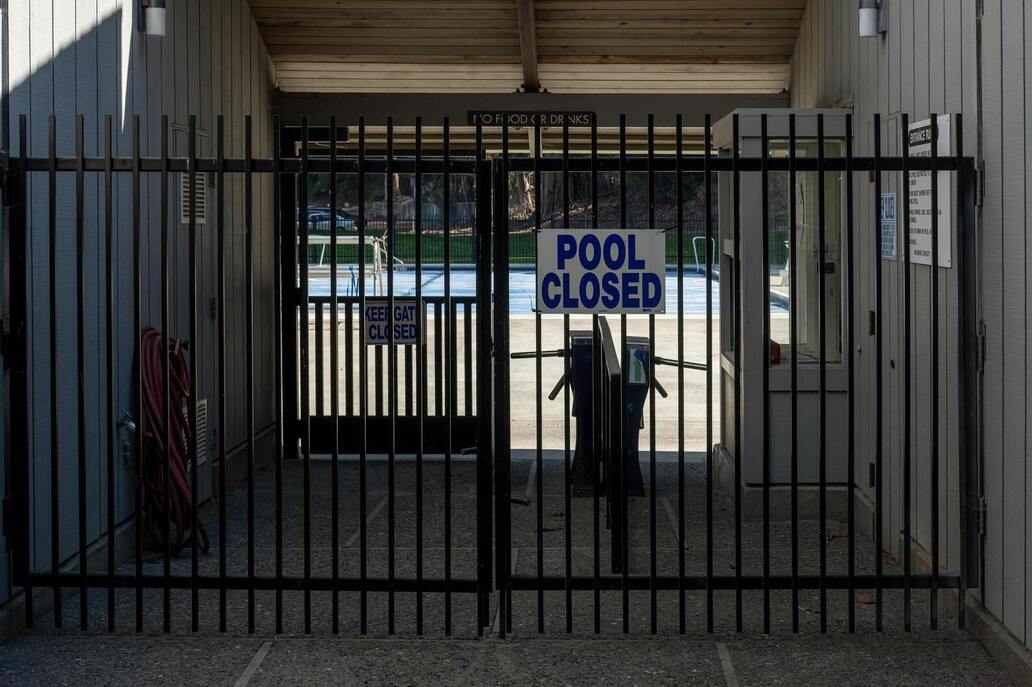Owning a swimming pool is a fantastic way to enhance your outdoor space, providing fun, relaxation, and exercise. However, maintaining your pool throughout the year requires more than just cleaning and chemical balancing. A swimming pool cover is an important part of pool maintenance, as it protects your pool from debris, conserves water, saves on energy costs, and increases safety. With so many types of swimming pool covers available, it can be overwhelming to figure out which option is best for your pool. Here are some of the swimming pool covers suitable for your swimming pool:
1. Solar Pool Covers
One of the most popular types of swimming pool covers is the solar cover, also known as a bubble cover. Solar pool covers are designed to trap heat from the sun and transfer it into your pool water. This helps to keep the water warm. These covers are made of a lightweight, bubble-wrap-like material that floats on the water’s surface.
- Energy Efficiency: If you want to maintain your pool’s temperature without relying on a heater, a solar cover is a great choice. It can raise the water temperature by 10 to 15 degrees Fahrenheit, saving energy costs and extending the swimming season.
- Water Conservation: Solar covers also help reduce water evaporation. This is especially useful during hot summer months when pools tend to lose water quickly. By minimizing evaporation, you’ll conserve water and reduce the need for frequent refilling.
- Ease of Use: Solar covers are relatively lightweight and easy to remove, making them a practical choice for daily use. However, because they float on the water, they don’t provide much safety protection if pets or children accidentally fall in.
2. Winter Pool Covers
If you live in a region with harsh winters, a winter pool cover is an essential item to protect your pool during the colder months. These heavy-duty covers are designed to keep debris, such as leaves, twigs, and dirt, out of your pool while it’s not in use.
- Durability: Winter pool covers are typically made from thick vinyl or mesh material, ensuring they can withstand heavy snowfall, ice, and strong winds. They prevent contaminants from entering your pool, making opening your pool in the spring easier and faster.
- Algae Prevention: Because they block sunlight, winter covers also help prevent algae growth during the offseason, keeping your pool cleaner and reducing the need for extra chemicals when you reopen it.
- Cost-Effective: Winter covers are generally less expensive than other options and provide long-lasting protection. However, they require manual removal and installation, which can be time-consuming.
3. Safety Pool Covers
Safety pool covers are designed not only to keep debris out but also to provide an extra layer of protection for your family and pets. These covers are constructed from strong mesh or solid materials and are anchored securely to the pool deck, making them a reliable barrier that can support weight.
- Enhanced Safety: One of the primary benefits of safety pool covers is that they can support the weight of a child or pet if they accidentally walk or fall onto the cover. This added safety makes them a top choice for families with young children or pets.
- Debris Prevention: Like winter covers, safety covers are excellent at keeping leaves and debris out of your pool during the offseason, ensuring a clean pool when you’re ready to use it again.
- Maintenance: Safety covers are relatively easy to maintain but may take more effort to install and remove due to the anchor system. Despite this, the peace of mind they provide is well worth the effort.
4. Automatic Pool Covers
For convenience and ease of use, automatic pool covers are a fantastic option. With the push of a button, these motorized covers extend over the pool or retract into a hidden compartment, making pool maintenance much simpler.
- Convenience: If you use your pool regularly and want an easy-to-use cover, an automatic pool cover is the perfect solution. You won’t have to manually cover or uncover your pool every time you want to use it, saving time and effort.
- Energy Efficiency: Similar to solar covers, automatic covers help retain heat and reduce water evaporation, making your pool more energy-efficient. They also keep debris out, reducing the time you’ll spend cleaning the pool.
- Cost: While automatic covers are convenient and effective, they are typically the most expensive option. They require professional installation and regular maintenance to ensure the motor and system function properly.
5. Mesh Pool Covers
Mesh pool covers are a popular choice for those looking for a balance between affordability, debris protection, and ease of use. These covers allow water and fine particles to pass through while blocking larger debris like leaves and branches.
- Water Drainage: Because mesh pool covers allow water to pass through, you won’t have to worry about removing accumulated water after a storm. This feature makes them low-maintenance compared to solid covers that require a pump to remove standing water.
- Lightweight and Easy to Handle: Mesh covers are generally lighter and easier to handle than solid covers. This makes them easier to install and remove without needing assistance.
- Debris Protection: While mesh covers keep larger debris out, they may allow fine particles like dust or silt to enter the pool, requiring some extra cleaning when you open the pool.
6. Solid Pool Covers
Solid pool covers offer the ultimate protection by completely blocking out debris, sunlight, and water. These covers are typically made from thick vinyl or plastic and provide a more complete barrier than mesh covers.
- Algae Prevention: By completely blocking sunlight, solid covers help prevent algae growth, making them a great option if you want to minimize cleaning and chemical use during the offseason.
- Water Collection: One downside of solid covers is that they don’t allow water to drain through, meaning you’ll need to use a pool cover pump to remove any accumulated rain or snowmelt.
Safety and Durability: Solid covers offer excellent protection, though they can be heavier and more challenging to install or remove compared to mesh covers. However, they offer a higher level of debris and contaminant prevention.
Choosing the Right Pool Cover for Your Needs
Now that you’ve explored the various types of swimming pool covers, how do you decide which one is right for your pool? Here are a few factors to consider:
- Climate: If you live in a colder climate, a winter cover or solid cover might be the best option to protect your pool during the offseason. If you live in a warmer area and want to reduce heating costs, a solar cover can help trap heat.
- Safety: If you hav0e young children or pets, investing in a safety pool cover is essential to prevent accidents.
- Budget: Pool covers range in price, so consider your budget when choosing. While automatic covers offer convenience, they are more expensive. Mesh or winter covers are more affordable options that still offer effective protection.
- Maintenance: Think about how much effort you want to put into maintaining your pool cover. Automatic and mesh covers are easier to manage, while solid covers require more manual effort to remove water buildup.
Visit Pool Life Swimmers Today: Get Swimming Pool Covers
If you’re looking to protect and maintain your pool, understanding the types of swimming pool covers matters. Pool Life Swimmers has you covered. We offer a wide selection of high-quality pool covers tailored to your specific needs. Visit Pool Life Swimmers today, and let our experts help you choose the perfect cover to keep your pool clean, safe, and well-maintained all year long!





